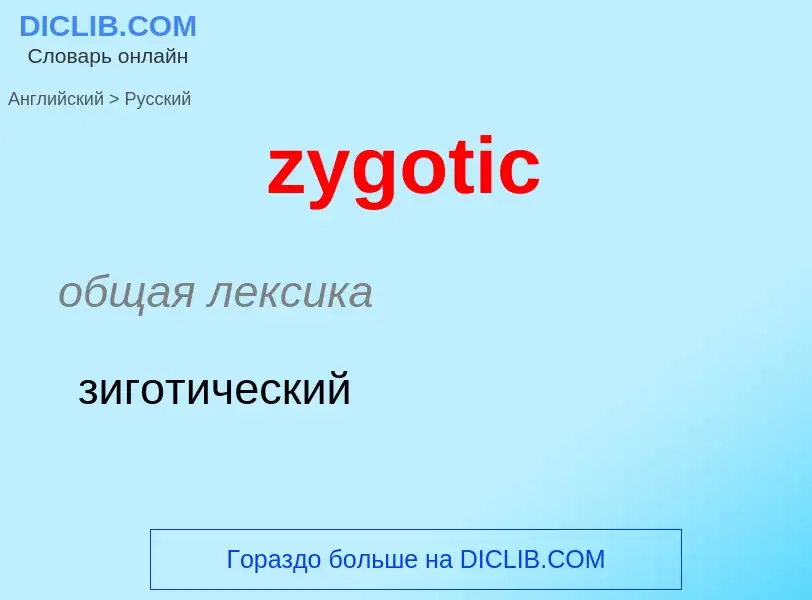Vertaling en analyse van woorden door kunstmatige intelligentie ChatGPT
Op deze pagina kunt u een gedetailleerde analyse krijgen van een woord of zin, geproduceerd met behulp van de beste kunstmatige intelligentietechnologie tot nu toe:
- hoe het woord wordt gebruikt
- gebruiksfrequentie
- het wordt vaker gebruikt in mondelinge of schriftelijke toespraken
- opties voor woordvertaling
- Gebruiksvoorbeelden (meerdere zinnen met vertaling)
- etymologie
zygotic - vertaling naar russisch
общая лексика
зиготический
['z(a)igəut]
общая лексика
зигота
существительное
биология
зигота
[z(a)i'gəusis]
общая лексика
зигозис
слияние гамет
биология
конъюгация
объединение гамет
медицина
зигозис (половое слияние двух одноклеточных организмов)
существительное
биология
конъюгация
объединение гамет
Definitie
Wikipedia

A zygote (from Ancient Greek ζυγωτός (zygōtós) 'joined, yoked', from ζυγοῦν (zygoun) 'to join, to yoke') is a eukaryotic cell formed by a fertilization event between two gametes. The zygote's genome is a combination of the DNA in each gamete, and contains all of the genetic information of a new individual organism.
In multicellular organisms, the zygote is the earliest developmental stage. In humans and most other anisogamous organisms, a zygote is formed when an egg cell and sperm cell come together to create a new unique organism. In single-celled organisms, the zygote can divide asexually by mitosis to produce identical offspring.
German zoologists Oscar and Richard Hertwig made some of the first discoveries on animal zygote formation in the late 19th century.


